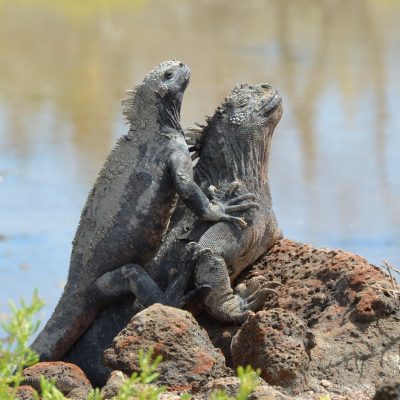
Quiver trees in Augrabies national Park in South Africa ©Juliano Palacios-Abrantres
Taking nature, society, and culture into consideration can change the way the natural sciences approach climate change, new UBC study found.
While focusing on creating sustainable climate change solutions, how dependent humans are on the natural world is often forgotten. From the Namibian desert to South African savannas to the Galapagos Marine Reserve, humans inhabit all corners of the world in different ways. To understand this, a conservation framework is needed to recognise this, and can be used to create more resilient ecosystems. The current business-as-usual conservationist approach needs to consider much more than economics and biodiversity. To combat this, a new UBC study applied a framework, the Nature Futures Framework (NFF), that can include Indigenous stakeholders, =expertise, and different knowledge systems in conversation efforts.
This study looked at Aloidendron dichotomum, woody encroachment, and the Galapagos Marine Reserve, and how humans use these very different environments for means of society, culture, and employment.
“The NFF tries to include everything – all the values we have, what we do; it can all fit. You can move in between the spaces of the framework,” said Dr. Juliano Palacios-Abrantes, lead author and post-doctoral fellow in the Changing Oceans Research Unit (CORU) in the University of British Columbia’s Institute for the Oceans and Fisheries (IOF). “With the framework, not everything is simple. What is good for biodiversity and some cultures may not necessarily be good for tourism and the economy. Conservation is holistic.”

Marine iguana in Galapagos Islands. Image ©Penny/Pixabay
The new framework would help natural scientists understand how to preserve important conservation areas, like the Galapagos Islands, while also allowing people like fishermen and ecotourism workers to maintain their livelihoods and ways of life. As a result, it would make climate change solutions stronger, and help integrate a wide variety of areas into conservation. Areas such as government and policy work, and grassroot initiatives, would be able to contribute to changing the way we look at climate change.
“The question is: how do you make the natural sciences and social sciences talk to each other?” Palacios-Abrantes said. “How do we achieve the flexibility needed for these areas to accommodate each other, and create long-lasting climate change solutions?”
Will this new framework be able to encompass all perspectives into every decision?
“Unfortunately, while the framework tries to find a middle ground, it cannot take into consideration all areas of nature and human life,” Palacios-Abrantes said. “It is hard to find a perfect balance between so many different perspectives and considerations. For everything, there are trade-offs that must happen in order to make decisions that move us forward.”
Managing biodiversity in the Anthropocene: discussing the Nature Futures Framework as a tool for adaptive decision-making for nature under climate change was published in Sustainability Science.
Tags: Biodiversity, Climate change, Conservation, Galápagos, IOF postdoctoral fellows, Juliano Palacios-Abrantes, natural science, Research, social sciences, tourism